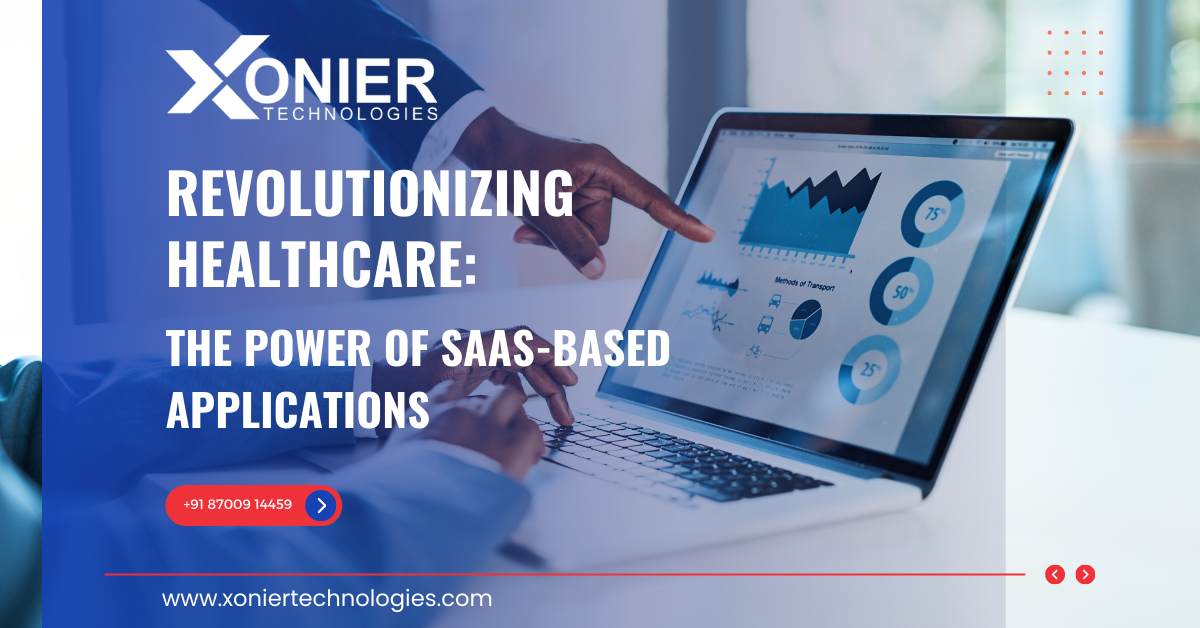In the rapidly evolving landscape of healthcare, Software as a Service (SaaS) applications are emerging as game-changers. These cloud-based solutions are transforming the way healthcare providers operate, offering enhanced efficiency, improved patient outcomes, and cost savings. In this blog, we’ll explore the impact of SaaS-based applications on healthcare, their key benefits, and some notable examples that are leading the way.
What is SaaS in Healthcare?
SaaS in healthcare refers to software applications delivered over the internet, typically through a subscription model. Unlike traditional software that requires installation on local servers, SaaS applications are hosted in the cloud, allowing for easy access from anywhere with an internet connection. This model offers numerous advantages, particularly in the healthcare sector where data accessibility, security, and scalability are paramount.
Key Benefits of SaaS-Based Applications in Healthcare
- Improved Accessibility and Collaboration
– Healthcare professionals can access patient records, diagnostic tools, and collaboration platforms from any location. This is particularly beneficial for telemedicine, enabling doctors to consult with patients remotely and collaborate with other healthcare providers in real-time.
- Cost Efficiency
– SaaS eliminates the need for expensive hardware and reduces IT maintenance costs. Healthcare providers can subscribe to the services they need, scaling up or down as required without significant upfront investments.
- Enhanced Data Security and Compliance
– Reputable SaaS providers ensure compliance with stringent healthcare regulations such as HIPAA in the US. They employ robust security measures to protect sensitive patient data, including encryption, regular security audits, and data backup.
- Scalability and Flexibility
– As healthcare organizations grow, SaaS applications can easily scale to accommodate increased data volume and additional users. This flexibility allows for seamless integration of new features and technologies without disrupting existing workflows.
- Automatic Updates and Maintenance
– SaaS providers handle software updates and maintenance, ensuring that healthcare organizations always have access to the latest features and security patches without downtime.
Read more:
5 Innovative Ways Technology is Transforming Marketing Strategies for Startups
Notable SaaS Applications in Healthcare
- Electronic Health Records (EHR)
EHR systems like Epic and Cerner are pivotal in modern healthcare. These SaaS-based solutions streamline patient record management, enabling easy access to patient histories, lab results, and treatment plans. They enhance care coordination and improve patient outcomes by providing healthcare professionals with comprehensive and up-to-date patient information.
- Telemedicine Platforms
With the rise of telehealth, platforms like Teladoc and Amwell have gained prominence. These SaaS applications facilitate remote consultations, allowing patients to receive medical advice and treatment from the comfort of their homes. This has been particularly crucial during the COVID-19 pandemic, reducing the strain on healthcare facilities and minimizing the risk of infection.
- Practice Management Software
Applications like Athenahealth and Kareo offer comprehensive practice management solutions, including scheduling, billing, and patient communication. These platforms help healthcare providers streamline administrative tasks, improve efficiency, and enhance the patient experience.
- Medical Imaging and Diagnostics
SaaS solutions such as Ambra Health provide cloud-based medical imaging management. These platforms enable healthcare providers to store, share, and analyze medical images securely. This facilitates quicker diagnoses and better collaboration among specialists.
- Patient Engagement and Health Monitoring
Applications like MyChart and Health Catalyst empower patients to take an active role in their healthcare. These platforms offer features like appointment scheduling, medication reminders, and personalized health insights. Additionally, they enable healthcare providers to monitor patients’ health remotely, ensuring timely interventions and continuous care.
The Future of SaaS in Healthcare
The future of SaaS in healthcare looks promising, with continuous advancements in technology driving innovation. Emerging trends such as artificial intelligence (AI), machine learning (ML), and big data analytics are poised to further enhance SaaS applications, enabling predictive analytics, personalized treatment plans, and improved patient outcomes.
Conclusion
SaaS-based applications are revolutionizing healthcare by offering accessible, cost-effective, and secure solutions. They enhance patient care, streamline operations, and enable healthcare providers to adapt to the ever-changing landscape of the industry. As technology continues to evolve, SaaS will undoubtedly play an increasingly vital role in shaping the future of healthcare, making it more efficient, patient-centric, and innovative.
Embracing SaaS is not just a technological shift but a strategic move towards a more responsive and resilient healthcare system. As healthcare providers continue to adopt and integrate these solutions, the potential for improved patient outcomes and operational efficiency will only grow, heralding a new era in healthcare delivery.


